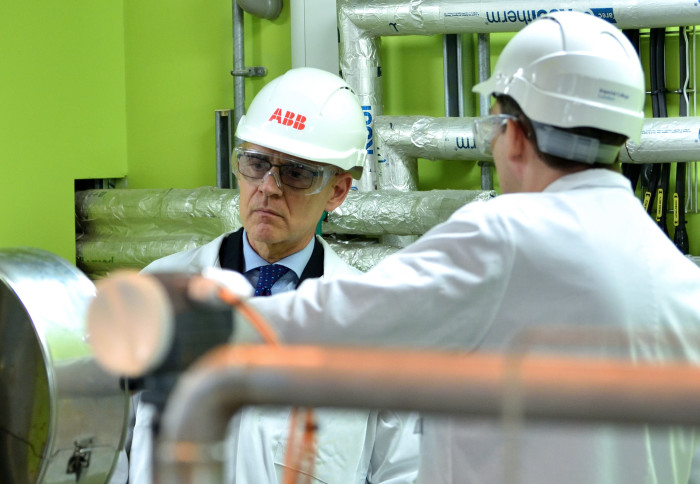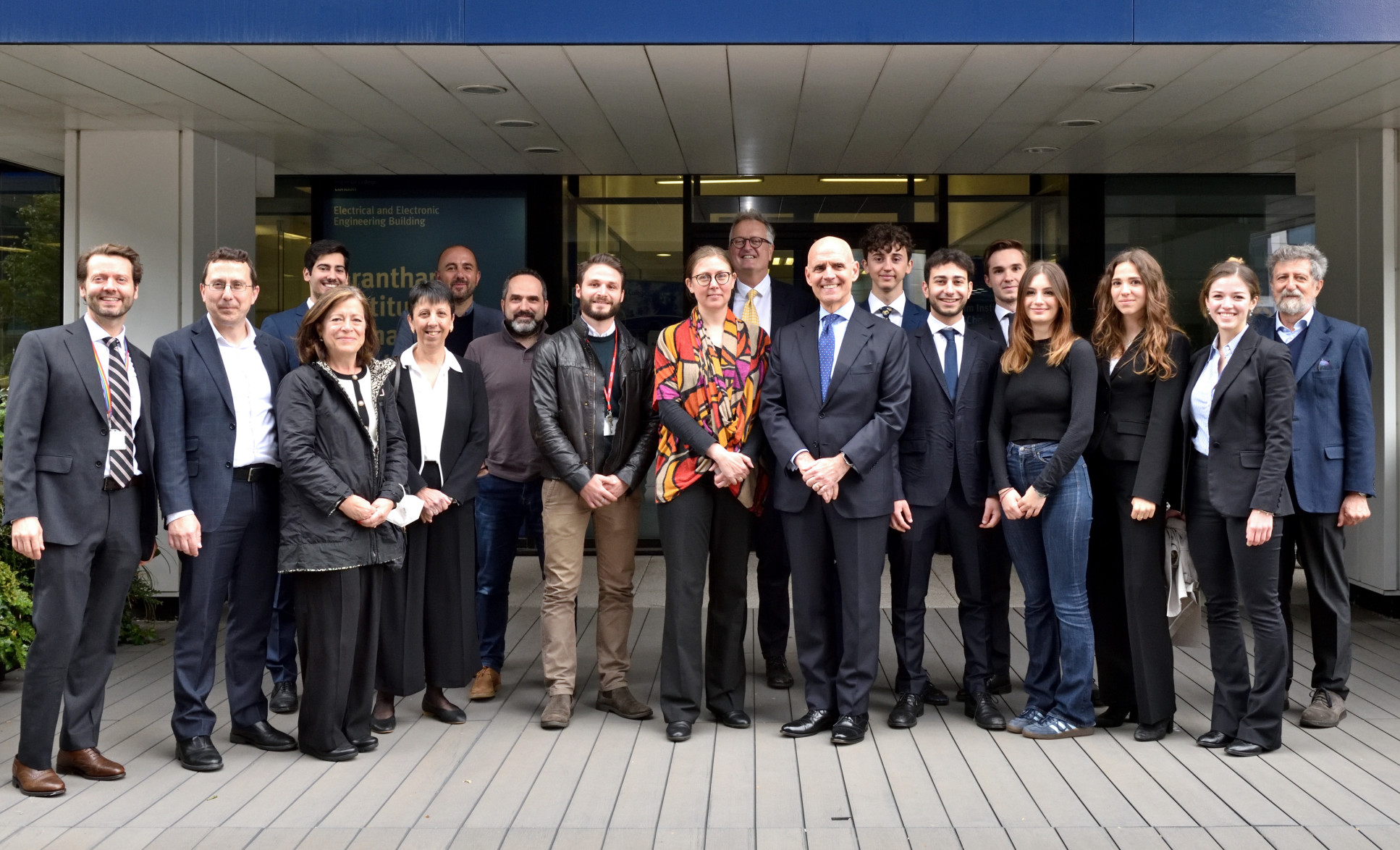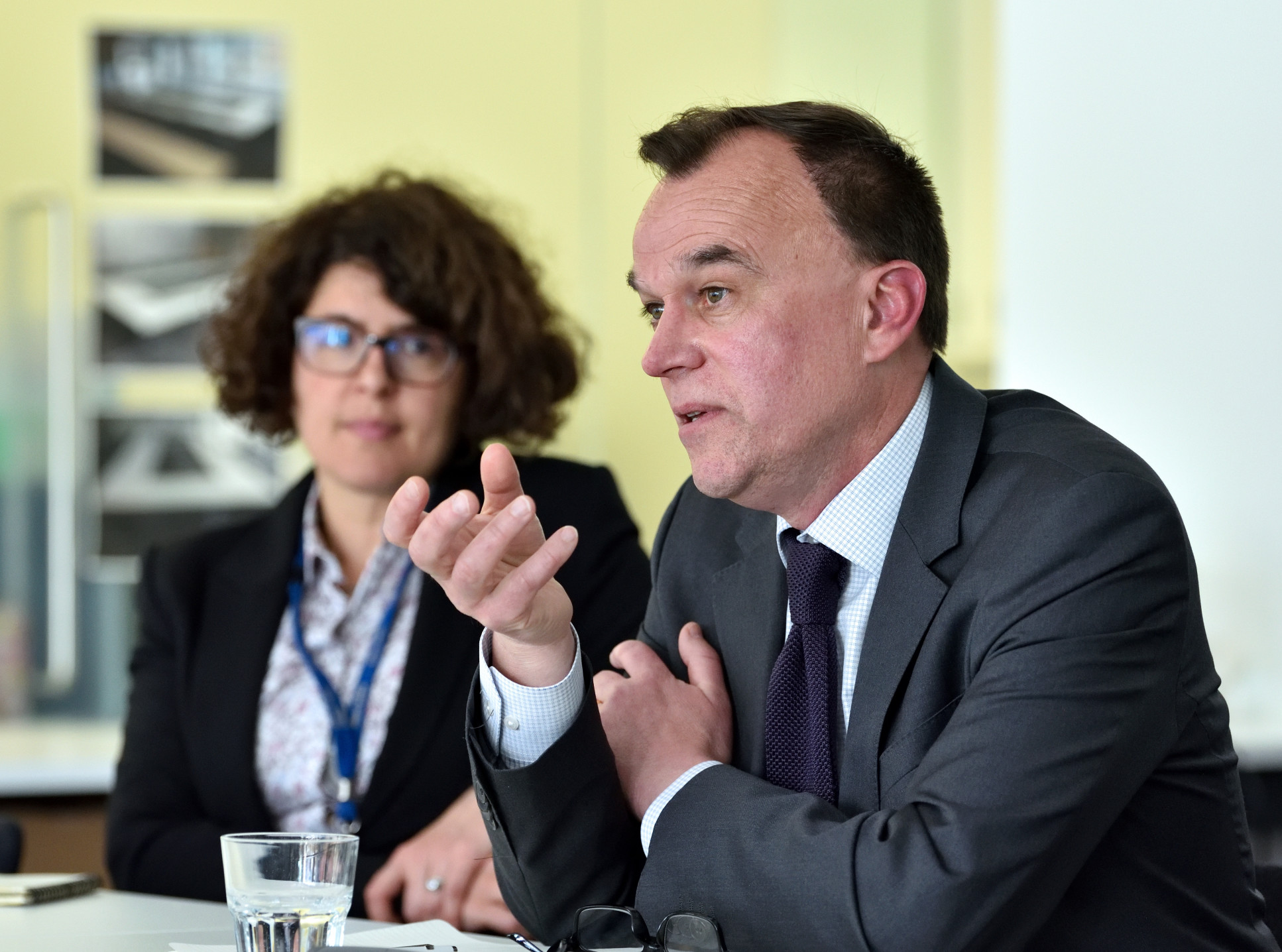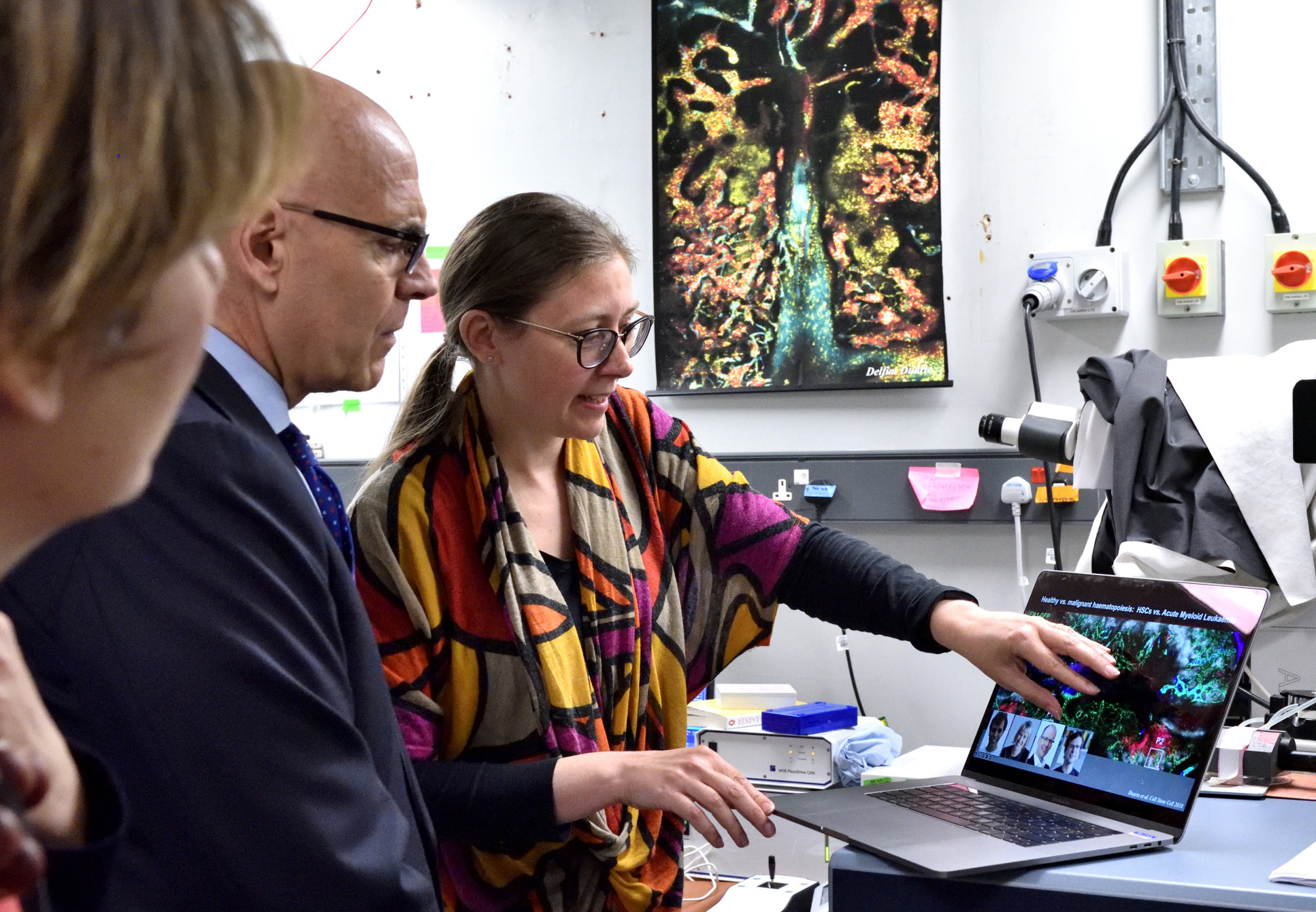Imperial climate experts warn Italian Ambassador about threats to Venice

The Italian Ambassador visited Imperial's Carbon Capture Plant
Imperial experts met the Italian Ambassador, Raffaele Trombetta, to discuss the consequences of climate change to places such as Venice.
The Ambassador met researchers and students during a visit to Imperial to discuss some of the research projects that are helping to reduce carbon emissions and monitor the impact of climate change.

Glaciologist and polar climate expert, Professor Martin Siegert, Co-Director of the Grantham Institute - Climate Change and Environment, said: "We are seeing that the Arctic is really changing really quickly because of climate change. The problem with Antarctic change is the world will see the consequences of that.
"Places like Venice are in peril because of sea ocean rise. It’s a real issue and we need to wake up to the problems and give them the attention we aren’t at the moment."

Alyssa Gilbert, the Director of Policy and Translation at the Grantham Institute - Climate Change and the Environment, spoke about the UK Universities Climate Network (UUCN), which was set up ahead of the UN Climate Change Conference (COP26), where the UK government had joint-presidency with Italy.
Ms Gilbert said: "The period of time before the international climate change negotiations – COP26 – was an exciting moment for Italian-UK collaboration. With the two countries taking on the co-Presidency of COP26, we mirrored this collaboration by working with a network of Italian universities (RUS) to bring together policymakers and researchers to share climate change evidence before the negotiations in November 2021.”
The Ambassador spoke about how the Embassy was now 'plastic free' and it was 'not a difficult process' to implement. The Ambassador was also 'impressed' with the science and people that he had encountered during his visit.
The Italian Ambassador visited Imperial's Carbon Capture Pilot Plant, which trains students on best practice for capturing and storing harmful carbon dioxide (CO2) during industry processes.

The Ambassador also visited Italian academic Professor Cristina Lo Celso’s lab and learnt about her ERC-funded work in stem cell biology.
Imperial's Vice President (International) Professor Maggie Dallman presented the College's strategy to the Ambassador and spoke about the work taking place at the new White City campus.
Imperial and Italy
Imperial has many strong links with Italy. For example, academics from Imperial and Italy collaborate on more than 500 EU-funded Horizon 2020 projects. Read more about our links with partners in Italy.
Imperial's top Italian collaborators include the University of Naples Federico II, University of Milan, University of Bologna and University of Rome La Sapienza.
There are more than 400 Italian staff at Imperial, the highest of any international group, and more than 400 students.
Matilde Brunetta, Chemistry student

Matilde, a third-year Chemistry student, said: "A degree in Chemistry really offers a full range of opportunities, originally I intended to get into the field of forensic sciences or pharmaceuticals, offering my help by working in the lab.
"However, after three years at Imperial I realised there is so much more to this subject which I might be more interested in. For now I am focusing on choosing the right project for my Master and possibly continuing my research by pursuing a PhD in this area."
Matilde added: "By attending a world-leading university I had the chance to be around people who share my same interests and ambitions. I share the best memories with people who I am sure will be in my life forever and I got close to many people coming from cultures that are far away from mine and for this I am extremely grateful.
"Since day one at Imperial it has always been a stimulating and inspiring experience.
"Chemistry had always been the field which held all the answers to my questions and Imperial is one of the world's best places for studying the subject."
Andrea Antonuccio, Chemical Engineering student

Andrea, a third-year chemical engineering student, said: "What attracted me to studying at Imperial was the idea of working with other students who all share my same passion and drive for science and mathematics. I felt that my passions could continue to be cultivated while also having the opportunity to live in an incredibly dynamic and international city that is London.
"For someone who is deeply interested in renewables and sustainability, learning that the chemical engineering department had their very own carbon capture plant made the decision to come to Imperial extremely easy.
"My plan is to purse a career in the Energy sector, preferably working for a company leader in the renewables movement. I want to be able to apply the knowledge learnt in the chemical engineering course in these past couple of years at Imperial to help corporations and Europe reach the net-zero goal set by 2050.
"I believe the exposure that the university has given me will play an essential role in my future placements in this industry and has helped me shape the person I am today."
Article text (excluding photos or graphics) © Imperial College London.
Photos and graphics subject to third party copyright used with permission or © Imperial College London.
Reporter
Stephen Johns
Communications Division